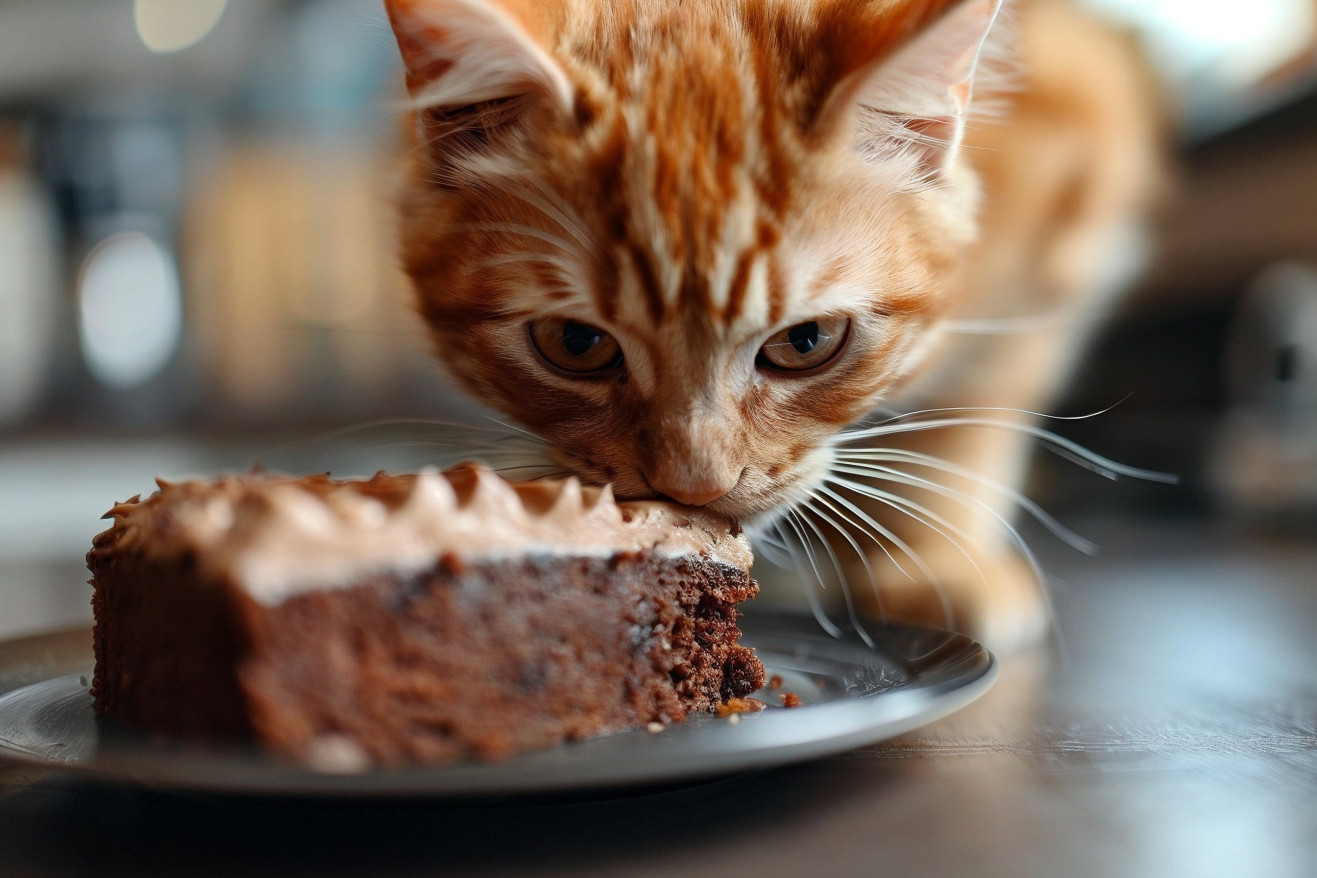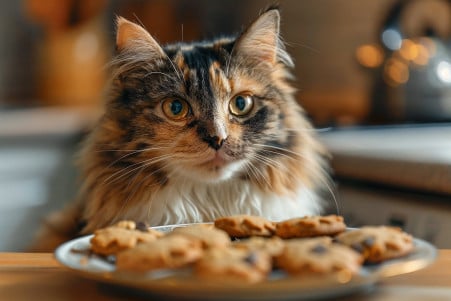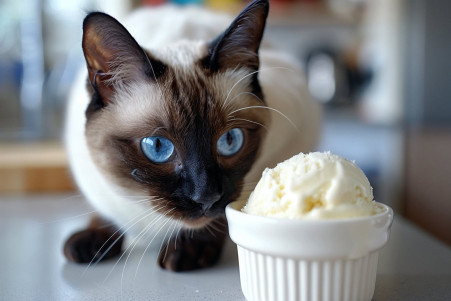Can Cats Eat Cake? The Risks of Feeding Human Treats
6 April 2024 • Updated 5 April 2024

Cats have very different dietary needs than humans, so it's important to know if sweet human treats like cake are OK for your cat to eat. While cats can technically have a bite of unsweetened cake here and there, regularly giving them cake or other baked goods that are high in sugar and fat can cause cats to become overweight and even lead to diabetes and other health problems.
By looking at studies and expert opinions from veterinarians and animal nutritionists, we can learn more about the potential dangers and issues associated with giving cats cake and other human foods. This will help us understand cats' specific dietary needs and how their bodies react to certain foods. By the end, you'll be able to decide whether or not it's OK to give your cat a special treat every once in a while while still making sure they're getting the nutrition they need.
Can cats eat cake?
Toxic Cake Ingredients: What Not to Give Cats
There are several ingredients in cake that are toxic or otherwise harmful to cats. Chocolate, which is used in many cake recipes, is toxic to cats and can cause vomiting, diarrhea, tremors, seizures, and even death, according to the ASPCA. The toxic substances in chocolate, known as methylxanthines, are found in different concentrations in different types of chocolate but all are dangerous.
Raisins and grapes, which are sometimes used in cakes, are also toxic to cats and can cause kidney failure, although the toxic substance is not yet known. Even small amounts of grapes or raisins should be avoided. The sugar in cake can lead to obesity and diabetes in cats, according to RAWZ Natural Pet Food.
Cake icing and frosting often contain high levels of sugar and fat, which can lead to gastrointestinal upset and weight gain in cats if they eat enough. While a small amount of plain cake may not be immediately toxic, it doesn't provide the balanced nutrition that cats need and it does contain substances that could build up over time and cause health problems. It's best to avoid giving cats cake altogether.
Safe Human Foods for Cats: Occasional Treats to Consider
While cake is not a good option for cats, there are some human foods that can be given to cats as an occasional treat. According to the Lakeland Animal Clinic, cooked lean meats, fish, and eggs can be fed to cats in moderation to help them get the protein and other nutrients they need. In addition, some fruits and vegetables, including bananas, blueberries, and carrots, can be given to cats in small amounts as a treat, according to Stella & Chewy's.
New human foods should be introduced to cats gradually and in small amounts to make sure they don't cause any negative reactions. In addition, treats should never be a large part of a cat's diet, which should be made up primarily of a nutritionally complete, balanced cat food, according to BeChewy. By learning about the human foods that are safe for cats, cat owners can make sure they give their cats occasional treats while still prioritizing their cats' overall health and nutrition.
Potential Health Risks of Giving Cats Cake
Feeding cats cake or other sweet human treats on a regular basis can result in obesity and obesity-related conditions, including diabetes, according to the Cats Protection organization. The high fat and sugar content in cake can also cause gastrointestinal upset, including vomiting and diarrhea, in cats.
Some of the ingredients in cake, such as chocolate and raisins, are toxic to cats and can cause symptoms like seizures and kidney failure. In addition, feeding cats cake and other human foods can lead to nutritional imbalances in a cat's diet since these foods don't contain the vitamins and minerals that cats need, according to Hills Pet Nutrition.
If you do give your cat human treats, it's important to keep an eye on their weight and overall health and to seek veterinary care if you notice any worrisome symptoms. However, the best way to ensure that your cat stays healthy and happy is to avoid giving them cake and other sweet human foods.
How to Tell If Your Cat Has Been Poisoned and What to Do
If your cat has eaten something toxic like chocolate or raisins, it's important to know the signs of poisoning so you can get your pet to the vet right away. According to the Pet Poison Helpline, symptoms of poisoning in cats can include vomiting, diarrhea, lethargy, excessive drooling, difficulty breathing, and seizures.
If you think your cat has been poisoned, the Citrus County Vets recommend calling your vet or a pet poison control hotline immediately and providing them with as much information as you can about what your cat ingested. You should not try to induce vomiting or give your cat any treatments unless you've been directed to do so by a professional, as this can be dangerous for your cat, according to the ASPCA Animal Poison Control Center.
If your cat is treated and monitored by a vet right away, the Cornell University College of Veterinary Medicine explains that the prognosis for cats that have been poisoned is good. By learning the signs of poisoning and acting quickly, you can help ensure your cat stays safe and healthy.
Conclusion: How to Keep Your Cat Safe and Healthy
Although cats can eat plain cake in small amounts, it's best to avoid feeding them cake and other sugary human foods. According to Hepper, while cats can technically eat small amounts of plain cake, it's best to give them other treats and not let them eat cake. This is because cake is high in sugar and other unhealthy ingredients that can cause obesity, diabetes, and other health problems in cats.
Catster points out that cake doesn't contain the proteins, vitamins, and minerals that cats need to be healthy. In addition, the high fat, sugar, and calorie content of cake can lead to weight gain and related issues, including weakness, difficulty breathing, and an increased risk of diabetes.
In addition to the health problems associated with cake, some of the ingredients in cake, such as chocolate and raisins, are toxic to cats and can cause vomiting, seizures, and kidney failure. Even small amounts of these ingredients can be harmful to cats.
Although cats may enjoy the occasional taste, it's best to avoid feeding cats cake and other sugary human foods to ensure that they stay safe and healthy. By learning about cats' nutritional needs and the potential dangers of human foods, cat owners can make the best choices to ensure their pets' safety and well-being.


